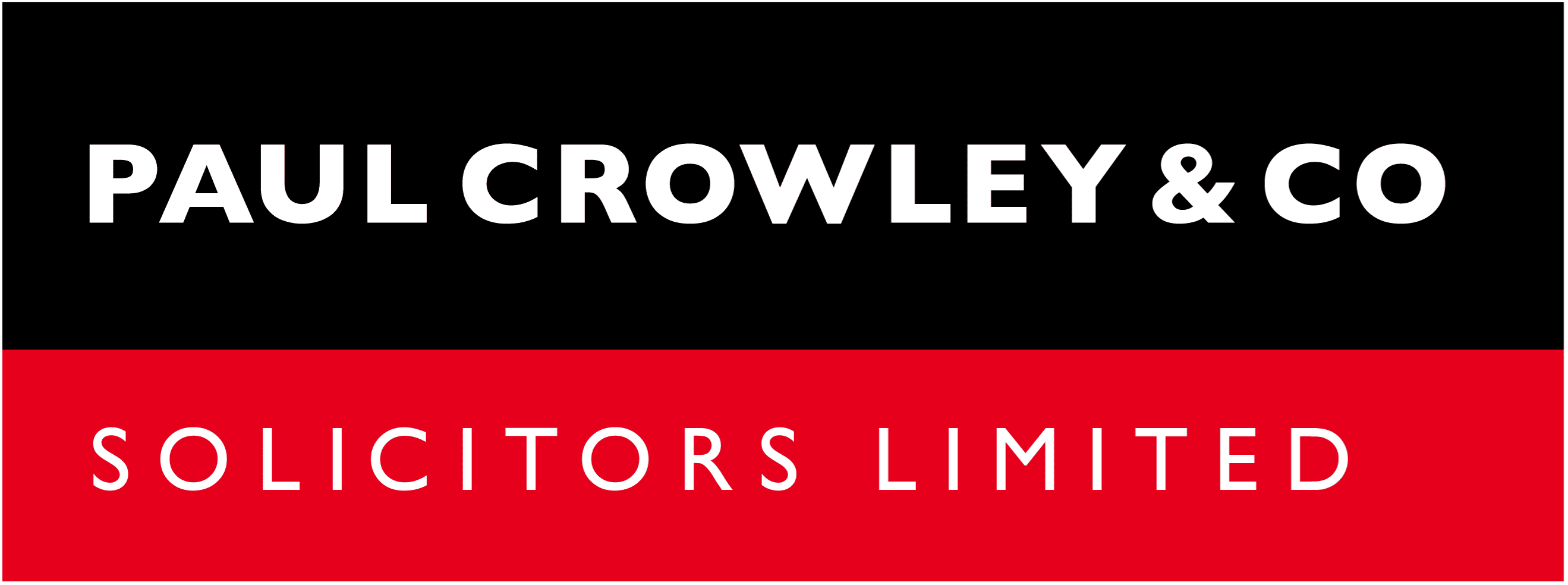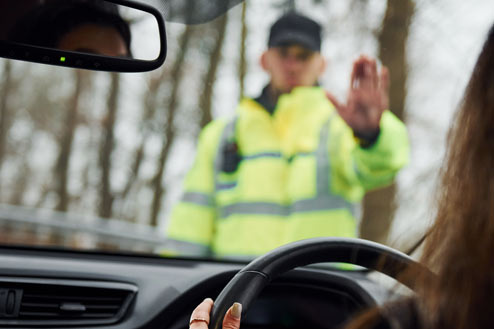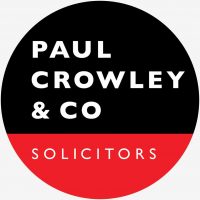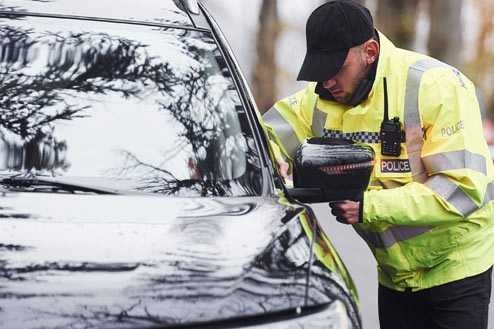If you have been caught speeding and are looking for expert legal advice, you have come to the right place, Paul Crowley & Co’s vastly experienced speeding offence solicitors are here to help.
Emma Smith, solicitor, from Paul Crowley & Co’s motoring offence department provides answers to the questions regularly asked by clients when caught speeding.
Legal aid or any public funding is not available for speeding offences. Our specialist motoring offence team at Paul Crowley & Co are able to offer a client an initial exclusive 30 minute consultation for a fee of £50+vat to discuss an alleged motoring offence and advise on their best course of action.
For expert legal advice…
For for expert legal advice or if there is a motoring offence question you would like to ask, please call Paul Crowley & Co on 01512646588 and a member of our specialist legal team will be happy to assist.
It depends, the Police have 14 days in which to serve the registered keeper of the vehicle with a Notice of Intended Prosecution (NIP), if they fail to do this they cannot proceed with a prosecution. The NIP sets out the details of the alleged offence, it is important to read through the NIP carefully to make sure that you abide by any conditions and timescales given.
The Police will also send out a Section 172 notice to the registered keeper of the vehicle, enquiring as to who was driving the vehicle at the time of the alleged offence. You must return the Section 172 notice within 28 days, informing the police who the driver of the vehicle was. Failure to return the Section 172 notice could involve you going to court. (Gov.uk website)
After you have returned the Section 172 notice, you will be sent either a:
- Fixed Penalty Notice (FPN)
- Letter telling you to go to court
The police must serve a Notice of Intended Prosecution for a speeding offence within 14 days of the offence. If they do not, they cannot continue with a prosecution.
There’s no way to check if you’ve been caught speeding, you will have to wait and see if you receive a Notice of Intended Prosecution from the local police force, which you should receive in the post within 14 days of the offence.
If you plead guilty, you’ll have to pay a £100 fine and have 3 points added to your licence, unless you’re given the option to attend a speed awareness course.
If you plead not guilty, you’ll have to attend court. You would be advised to speak with a member of Paul Crowley & Co’s motoring offence experts before deciding to plead not guilty as you could be on the receiving end of a greater fine and further penalty points if the court decides that you are guilty of the speeding offence.
The amount you’re fined depends on what the speed limit was and how much over the limit you were driving. The fine is usually a percentage of your weekly income, up to a maximum of £1,000 (£2,500 if you were driving on a motorway). You could also be disqualified from driving or have your licence suspended.
Emma says: “If you are being prosecuted by the Police for an alleged speeding offence, it is important that you seek specialist legal advice. At Paul Crowley & Co our experienced legal team have successfully defended clients against motoring offence prosecutions. Call our motoring offence team and see how we can help you.”
Emma Smith, Director
Motoring Offence Solicitor
If caught speeding you should receive a Notice of Intended Prosecution, a response is required within 14 days – if you ignore it, you may have to go to court.
It is advisable to seek legal advice if you receive a NIP. At Paul Crowley & Co, our solicitors have vast experience in successfully defending cases relating to speeding tickets and fines and understand the serious repercussions of being issued with a speeding ticket and how best to address them.
For the best possible legal advice, contact our legal team on 01512646588 to see how we can help.
If you’re caught speeding, depending on the speed at which you were travelling, you may receive:
- A warning
- An invitation to attend a Speed Awareness Course
- A fixed penalty notice/traffic offence report
- A summons for court
It’s also more than likely that you will have to produce your documents (driving licence, motor insurance and MOT certificate) at a police station of your choice within 7 days (unless you have all the necessary documentation with you).
Yes you can, depending on the circumstances the legal team from Paul Crowley & Co’s motoring offence department have successfully defended many drivers who have faced possible disqualification.
Clearly, the best way to prevent disqualification is to avoid conviction in the first place. In many cases, it is feasible that there is a viable defence, whether that is because Paul Crowley & Co can prove that the allegation is simply incorrect or because the Police have not prepared their case properly or failed to understand the basis of Paul Crowley & Co’s defence.
Most offences carry the potential of a discretionary disqualification instead of penalty points. An instant ban would typically range from 7 to 56 days, depending on the severity of the incident and the circumstances of the driver. However the Magistrates have complete discretion and in extreme cases a ban can be significantly increased.
Likewise, a ban can be completely overturned, subject to what is presented in court by your legal representative from Paul Crowley & Co. Pleading guilty and paying the fine can also be considered one of the best ways to avoid disqualification on your license.
Under the Road Traffic Act 1998, it is an offence to withhold relevant information when applying for car insurance. This means that you’re legally obligated to tell a prospective, or current insurer of any penalty points you receive.
If you are offered and attend a speed awareness course, you will avoid a conviction, so if you are asked whether or not you’ve been guilty of a motoring offence, you can technically say no. However, it is a grey area, and if an insurer asks you whether or not you have taken the awareness course, you are bound to say yes.
Insurers believe any conviction makes a driver a higher risk, so you will have to pay a higher insurance premium if you have committed an offence. If you have a driving conviction, there’s a direct link with your car insurance. If you’ve been caught speeding or been convicted of driving without due care and attention, that makes you a high risk driver and more expensive to insure.
Speeding tickets may increase the amount you pay for car insurance, as they are considered part of your driving record. The perception being that you’re a higher risk of an accident because of traffic violations on your driving record which may affect the cost of your insurance.
There is no entitlement to being offered a speed awareness course, it’s entirely at the discretion of the police. Possible reasons could include:
- You have completed a speed awareness course in the past three years
- It’s been too long since the offence (usually about four months)
- Speed may be in excess of local guidelines
- All speed awareness courses are fully booked
It won’t do any harm to ask the police why, but don’t expect a change of mind.
If you choose to take part in the speed awareness course you won’t have to pay the fine and the penalty points will not be added to your licence. Taking a speed awareness course should ensure your car insurance premium doesn’t go up.
Attendance on a speed awareness course is not a conviction. However, your details will remain on a database and should you be detected for committing a similar offence, within 3 years of the original offence for which you were offered a course, you will not have the option to go on another course.
You cannot have a course if you have already paid the penalty and surrendered your licence, as this takes precedence over the course offer.
Speak to a lawyer now…
If you have built up 12 or more penalty points within a 3 year period. It is important to seek legal advice as you could be disqualified from driving.
To speak directly with one of our expert lawyers call Paul Crowley & Co on 01512646588
Insurers have a wide range of criteria they use to assess the cost of your car insurance, so it’s best to check with your provider.
Failure to attend your speed awareness course on the date and time allocated, will result in you being prosecuted for the offence you have committed and there will be no refund of your course fee.
If you turn up after the course has started you will be refused entry and any rebooking will be subject to a full rebooking fee. It is therefore essential you give yourself plenty of time for your journey and plan your route in advance.
Penalty Points stay on your driving record for 4 or 11 years depending on the offence. This can start from either the date you’re convicted or the date of your offence.
The points are ‘valid’ for the first:
- 3 years, for a 4-year endorsement
- 10 years, for an 11-year endorsement
A court can take your penalty points into account if both:
- You commit another offence while it’s valid
- The endorsement is still on your driving record when the court considers your case
Penalty Points will stay on a driving record for 4 years from the date of conviction if the offence:
- Is for reckless or dangerous driving – shown on the driving record as DD40, DD60 and DD80
- Results in disqualification
The points can stay on your license 11 years from date of conviction if the offence is:
- Drink driving or drug driving – shown on the driving record as DR10, DR20, DR30, DR31, DR61 and DR80
- Causing death by careless driving while under the influence of drink or drugs – shown on the driving record as CD40, CD50 and CD60
- Causing death by careless driving, then failing to provide a specimen for analysis – shown on the driving record as CD70
Follow us on social media
Keep up-to-date with Paul Crowley & Co by following us on social media! Tweet us or message us on Facebook:




